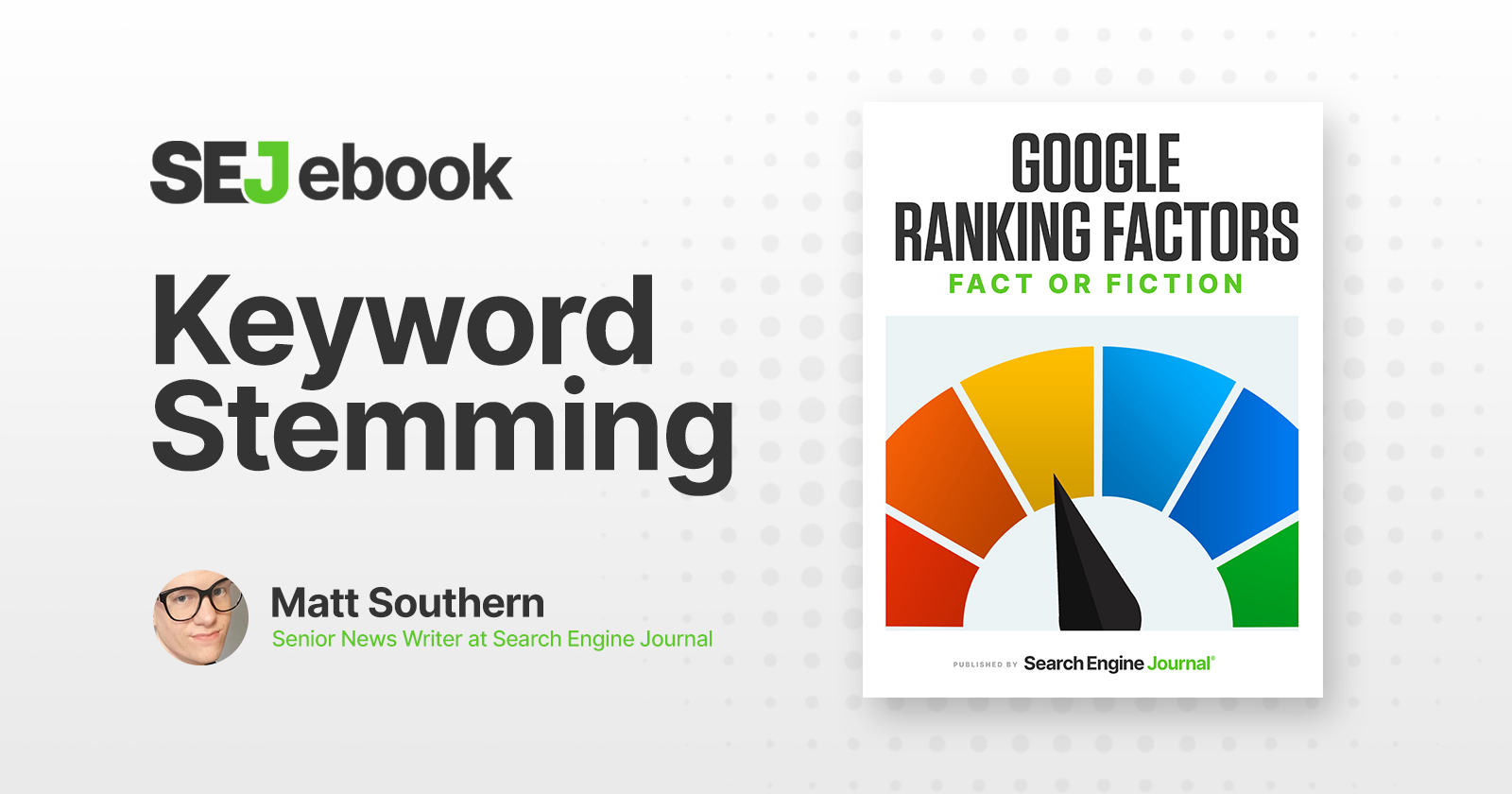When people talk about keyword stemming as a ranking factor, they’re referring to Google’s ability to recognize different variations of the same word.
Since Google can understand when a user enters a query with the word [monetize], it makes sense to include results with the words [monetization], [monetized], and [monetizing].
In the context of SEO, the act of keyword stemming involves modifying the use of key terms with different prefixes and suffixes.
Keyword stemming is said to be beneficial for search rankings.
Let’s investigate those claims and provide clarity around keyword stemming and its relation to SEO.
Advertisement
Continue Reading Below
The Claim: Keyword Stemming Is A Ranking Factor
The claims around keyword stemming suggest that using variations of key terms can help a page rank for more queries.
“Stemming” means appending different prefixes and suffixes to the same term. The root word doesn’t change; it’s only the beginning or end of the word that varies.
In the previous section, we went over an example of how to stem the word “monetize” with different suffixes.
As an example of modifying a term with different prefixes, let’s take the word “hydrate.” Say an article is being written about hydration; there’s an opportunity to stem this term with “dehydrate” and “rehydrate.”
Advertisement
Continue Reading Below
In this example, instead of ranking primarily for queries with the word [hydrate], keyword stemming can help the page rank for a greater variety of queries.
That’s the claim, at least.
But is keyword stemming a genuinely effective way to optimize pages for more queries?
The Evidence For Keyword Stemming As A Ranking Factor
Keyword stemming is one of the oldest confirmed updates to Google’s algorithm, dating all the way back to 2003.
There are conflicting reports that stemming technology was baked into Google’s Florida update, which rolled out in November 2003. However, Google added word stemming to its algorithm in a separate update that came out around the same time.
Long before the days of Matt Cutts and John Mueller, the SEO community depended on posts from “GoogleGuy” on WebmasterWorld.com. This individual confirmed Google began utilizing word stemming in a post dated December 4, 2003:
“Within the last month or so we’ve made stemming be more visible, but it’s been in a testing mode that’s less visible for a while longer. If you like it–great! If you don’t like it, you can put a plus sign in front of the word to turn it off, e.g. searching for cert advisory returns great results at #1 and #2 from CERT because we can also match against advisories.
If you really only want to match the word “advisory” though, you can search for cert +advisory, and then we’ll only match that exact word.”
Advertisement
Continue Reading Below
This was a novel idea in 2003, but now it’s known that Google can return results containing variations of the keyword in the query. We see evidence of this every day in almost every SERP.
Keyword Stemming As A Ranking Factor: Our Verdict

While Google is able to recognize keyword “stems,” and use them to return more relevant results, it’s inaccurate to call keyword stemming a ranking factor.
Advertisement
Continue Reading Below
It’s true that websites can potentially increase their chances of ranking for more queries with keyword modifications.
However, a webpage will not rank better or worse based on the fact that it uses different forms of a keyword throughout the copy.
That’s something content writers will do naturally without thinking about it. Using variations of words along with synonyms makes for more interesting writing compared to repeating the same word over and over again.
Intentional keyword stemming could come across as unnatural; as though the writer was trying to cram keyword variations into the copy to rank for more queries.
Advertisement
Continue Reading Below
Google can sniff out those attempts to manipulate search rankings, and will likely deal with them by demoting the content.
With that in mind, site owners should keep writing content naturally and not worry about this ancient addition to Google’s algorithm.
Featured image: Paulo Bobita/SearchEngineJournal
